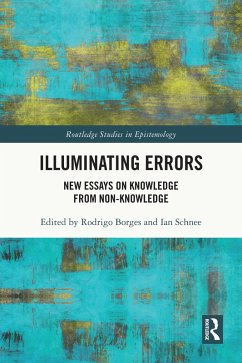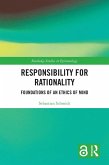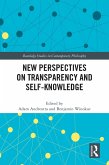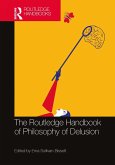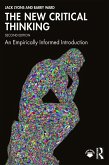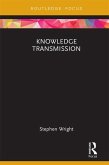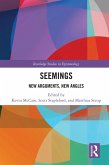Illuminating Errors (eBook, PDF)
New Essays on Knowledge from Non-Knowledge
Redaktion: Borges, Rodrigo; Schnee, Ian
41,95 €
41,95 €
inkl. MwSt.
Sofort per Download lieferbar

21 °P sammeln
41,95 €
Als Download kaufen

41,95 €
inkl. MwSt.
Sofort per Download lieferbar

21 °P sammeln
Jetzt verschenken
Alle Infos zum eBook verschenken
41,95 €
inkl. MwSt.
Sofort per Download lieferbar
Alle Infos zum eBook verschenken

21 °P sammeln
Illuminating Errors (eBook, PDF)
New Essays on Knowledge from Non-Knowledge
Redaktion: Borges, Rodrigo; Schnee, Ian
- Format: PDF
- Merkliste
- Auf die Merkliste
- Bewerten Bewerten
- Teilen
- Produkt teilen
- Produkterinnerung
- Produkterinnerung

Bitte loggen Sie sich zunächst in Ihr Kundenkonto ein oder registrieren Sie sich bei
bücher.de, um das eBook-Abo tolino select nutzen zu können.
Hier können Sie sich einloggen
Hier können Sie sich einloggen
Sie sind bereits eingeloggt. Klicken Sie auf 2. tolino select Abo, um fortzufahren.

Bitte loggen Sie sich zunächst in Ihr Kundenkonto ein oder registrieren Sie sich bei bücher.de, um das eBook-Abo tolino select nutzen zu können.
This is the first collection of essays exclusively devoted to knowledge from non-knowledge and related issues. It features original contributions from some of the most prominent and up-and-coming scholars working in contemporary epistemology.
- Geräte: PC
- mit Kopierschutz
- eBook Hilfe
Andere Kunden interessierten sich auch für
![Responsibility for Rationality (eBook, PDF) Responsibility for Rationality (eBook, PDF)]() Sebastian SchmidtResponsibility for Rationality (eBook, PDF)41,95 €
Sebastian SchmidtResponsibility for Rationality (eBook, PDF)41,95 €![Imagination and Experience (eBook, PDF) Imagination and Experience (eBook, PDF)]() Imagination and Experience (eBook, PDF)41,95 €
Imagination and Experience (eBook, PDF)41,95 €![New Perspectives on Transparency and Self-Knowledge (eBook, PDF) New Perspectives on Transparency and Self-Knowledge (eBook, PDF)]() New Perspectives on Transparency and Self-Knowledge (eBook, PDF)41,95 €
New Perspectives on Transparency and Self-Knowledge (eBook, PDF)41,95 €![The Routledge Handbook of Philosophy of Delusion (eBook, PDF) The Routledge Handbook of Philosophy of Delusion (eBook, PDF)]() The Routledge Handbook of Philosophy of Delusion (eBook, PDF)45,95 €
The Routledge Handbook of Philosophy of Delusion (eBook, PDF)45,95 €![The New Critical Thinking (eBook, PDF) The New Critical Thinking (eBook, PDF)]() Jack LyonsThe New Critical Thinking (eBook, PDF)72,95 €
Jack LyonsThe New Critical Thinking (eBook, PDF)72,95 €![Knowledge Transmission (eBook, PDF) Knowledge Transmission (eBook, PDF)]() Stephen WrightKnowledge Transmission (eBook, PDF)23,95 €
Stephen WrightKnowledge Transmission (eBook, PDF)23,95 €![Seemings (eBook, PDF) Seemings (eBook, PDF)]() Seemings (eBook, PDF)41,95 €
Seemings (eBook, PDF)41,95 €-
-
-
This is the first collection of essays exclusively devoted to knowledge from non-knowledge and related issues. It features original contributions from some of the most prominent and up-and-coming scholars working in contemporary epistemology.
Dieser Download kann aus rechtlichen Gründen nur mit Rechnungsadresse in A, B, BG, CY, CZ, D, DK, EW, E, FIN, F, GR, HR, H, IRL, I, LT, L, LR, M, NL, PL, P, R, S, SLO, SK ausgeliefert werden.
Produktdetails
- Produktdetails
- Verlag: Taylor & Francis eBooks
- Seitenzahl: 342
- Erscheinungstermin: 20. Juli 2023
- Englisch
- ISBN-13: 9781000897616
- Artikelnr.: 68149259
- Verlag: Taylor & Francis eBooks
- Seitenzahl: 342
- Erscheinungstermin: 20. Juli 2023
- Englisch
- ISBN-13: 9781000897616
- Artikelnr.: 68149259
- Herstellerkennzeichnung Die Herstellerinformationen sind derzeit nicht verfügbar.
Rodrigo Borges is a Lecturer at the University of Florida. He works mainly in epistemology. He is currently working on a monograph about the Gettier Problem and knowledge. Ian Schnee is an Associate Teaching Professor at the University of Washington. He is the author of The Logic Course Adventure, an interactive textbook for formal logic courses. Besides epistemology, his research interests include philosophy of film, philosophy of video games, and pedagogy.
Introduction Rodrigo Borges and Ian Schnee Part 1: The Possibility of
Knowledge from Non-Knowledge Section 1: Justification and Essential
Falsehoods 1. Norms of Belief and Knowledge from Non-Knowledge E.J. Coffman
2. We Are Justified in Believing that KFK is Fundamentally Wrong Peter D.
Klein 3. No Knowledge From Falsity Fred Adams 4. Harmless Falsehoods
Martin Montminy 5. Knowledge from Blindspots Rhys Borchert, Juan Comesaña,
and Timothy Kearl Section 2: Gettier, Safety and Defeasibility 6. Knowledge
from Error and Anti-Risk Virtue Epistemology Duncan Pritchard 7. Epistemic
Alchemy? Stephen Hetherington 8. The Benign/Malignant Distinction for False
Premises Claudio de Almeida 9. Knowledge, Falsehood, and Defeat Sven
Bernecker Part 2: Beyond the Possibility of Knowledge from Non-Knowledge
Section 3: Reasoning, Hinges and Cornerstones 10. The Developmental
Psychology of Sherlock Holmes: Counter-Closure Precedes Closure Roy
Sorensen 11. Inferential Knowledge, Counter Closure, and Cognition Michael
Blome-Tillmann and Brian Ball 12. Knowledge from Non-Knowledge in
Wittgenstein's On Certainty: A Dialogue Michael Veber 13. Vaults Across
Reasoning Peter Murphy 14. Entitlement, Leaching and Counter-Closure
Federico Luzzi Section 4: Knowledge: From Falsehoods and of Falsehoods 15.
Why is Knowledge from Falsehood Possible? An Explanation John Turri 16. The
Assertion Norm of Knowing John Biro 17. Knowledge Without Factivity Kate
Nolfi 18. Knowing the Facts, Alternative and Otherwise Clayton Littlejohn
Knowledge from Non-Knowledge Section 1: Justification and Essential
Falsehoods 1. Norms of Belief and Knowledge from Non-Knowledge E.J. Coffman
2. We Are Justified in Believing that KFK is Fundamentally Wrong Peter D.
Klein 3. No Knowledge From Falsity Fred Adams 4. Harmless Falsehoods
Martin Montminy 5. Knowledge from Blindspots Rhys Borchert, Juan Comesaña,
and Timothy Kearl Section 2: Gettier, Safety and Defeasibility 6. Knowledge
from Error and Anti-Risk Virtue Epistemology Duncan Pritchard 7. Epistemic
Alchemy? Stephen Hetherington 8. The Benign/Malignant Distinction for False
Premises Claudio de Almeida 9. Knowledge, Falsehood, and Defeat Sven
Bernecker Part 2: Beyond the Possibility of Knowledge from Non-Knowledge
Section 3: Reasoning, Hinges and Cornerstones 10. The Developmental
Psychology of Sherlock Holmes: Counter-Closure Precedes Closure Roy
Sorensen 11. Inferential Knowledge, Counter Closure, and Cognition Michael
Blome-Tillmann and Brian Ball 12. Knowledge from Non-Knowledge in
Wittgenstein's On Certainty: A Dialogue Michael Veber 13. Vaults Across
Reasoning Peter Murphy 14. Entitlement, Leaching and Counter-Closure
Federico Luzzi Section 4: Knowledge: From Falsehoods and of Falsehoods 15.
Why is Knowledge from Falsehood Possible? An Explanation John Turri 16. The
Assertion Norm of Knowing John Biro 17. Knowledge Without Factivity Kate
Nolfi 18. Knowing the Facts, Alternative and Otherwise Clayton Littlejohn
Introduction Rodrigo Borges and Ian Schnee Part 1: The Possibility of
Knowledge from Non-Knowledge Section 1: Justification and Essential
Falsehoods 1. Norms of Belief and Knowledge from Non-Knowledge E.J. Coffman
2. We Are Justified in Believing that KFK is Fundamentally Wrong Peter D.
Klein 3. No Knowledge From Falsity Fred Adams 4. Harmless Falsehoods
Martin Montminy 5. Knowledge from Blindspots Rhys Borchert, Juan Comesaña,
and Timothy Kearl Section 2: Gettier, Safety and Defeasibility 6. Knowledge
from Error and Anti-Risk Virtue Epistemology Duncan Pritchard 7. Epistemic
Alchemy? Stephen Hetherington 8. The Benign/Malignant Distinction for False
Premises Claudio de Almeida 9. Knowledge, Falsehood, and Defeat Sven
Bernecker Part 2: Beyond the Possibility of Knowledge from Non-Knowledge
Section 3: Reasoning, Hinges and Cornerstones 10. The Developmental
Psychology of Sherlock Holmes: Counter-Closure Precedes Closure Roy
Sorensen 11. Inferential Knowledge, Counter Closure, and Cognition Michael
Blome-Tillmann and Brian Ball 12. Knowledge from Non-Knowledge in
Wittgenstein's On Certainty: A Dialogue Michael Veber 13. Vaults Across
Reasoning Peter Murphy 14. Entitlement, Leaching and Counter-Closure
Federico Luzzi Section 4: Knowledge: From Falsehoods and of Falsehoods 15.
Why is Knowledge from Falsehood Possible? An Explanation John Turri 16. The
Assertion Norm of Knowing John Biro 17. Knowledge Without Factivity Kate
Nolfi 18. Knowing the Facts, Alternative and Otherwise Clayton Littlejohn
Knowledge from Non-Knowledge Section 1: Justification and Essential
Falsehoods 1. Norms of Belief and Knowledge from Non-Knowledge E.J. Coffman
2. We Are Justified in Believing that KFK is Fundamentally Wrong Peter D.
Klein 3. No Knowledge From Falsity Fred Adams 4. Harmless Falsehoods
Martin Montminy 5. Knowledge from Blindspots Rhys Borchert, Juan Comesaña,
and Timothy Kearl Section 2: Gettier, Safety and Defeasibility 6. Knowledge
from Error and Anti-Risk Virtue Epistemology Duncan Pritchard 7. Epistemic
Alchemy? Stephen Hetherington 8. The Benign/Malignant Distinction for False
Premises Claudio de Almeida 9. Knowledge, Falsehood, and Defeat Sven
Bernecker Part 2: Beyond the Possibility of Knowledge from Non-Knowledge
Section 3: Reasoning, Hinges and Cornerstones 10. The Developmental
Psychology of Sherlock Holmes: Counter-Closure Precedes Closure Roy
Sorensen 11. Inferential Knowledge, Counter Closure, and Cognition Michael
Blome-Tillmann and Brian Ball 12. Knowledge from Non-Knowledge in
Wittgenstein's On Certainty: A Dialogue Michael Veber 13. Vaults Across
Reasoning Peter Murphy 14. Entitlement, Leaching and Counter-Closure
Federico Luzzi Section 4: Knowledge: From Falsehoods and of Falsehoods 15.
Why is Knowledge from Falsehood Possible? An Explanation John Turri 16. The
Assertion Norm of Knowing John Biro 17. Knowledge Without Factivity Kate
Nolfi 18. Knowing the Facts, Alternative and Otherwise Clayton Littlejohn
